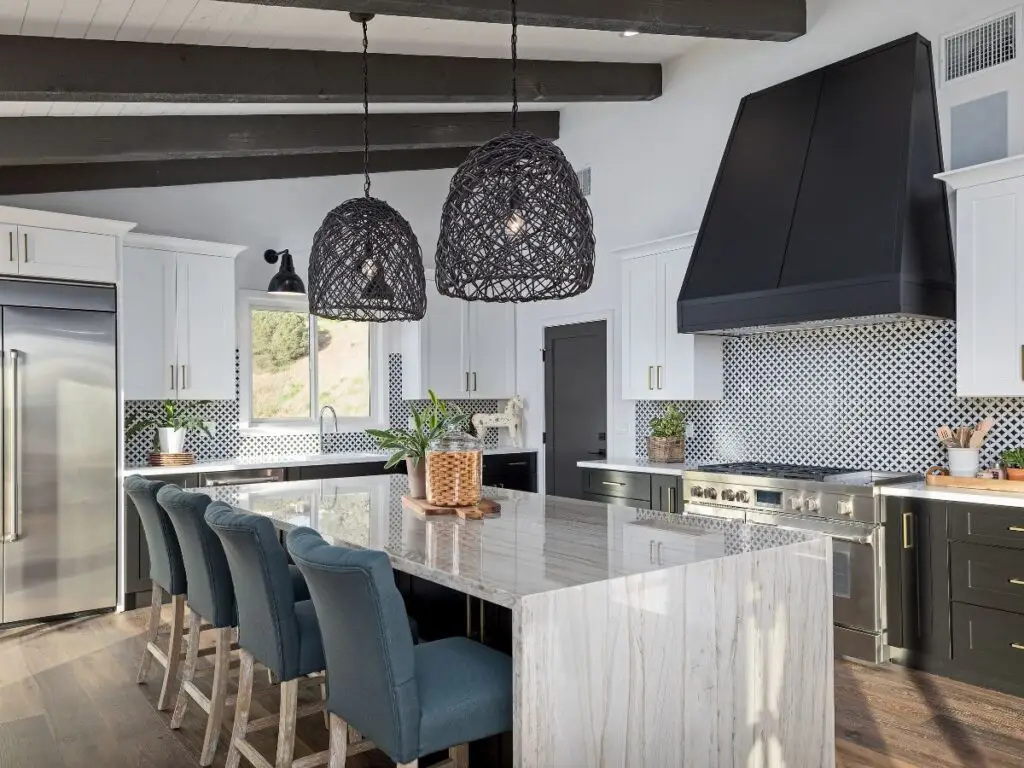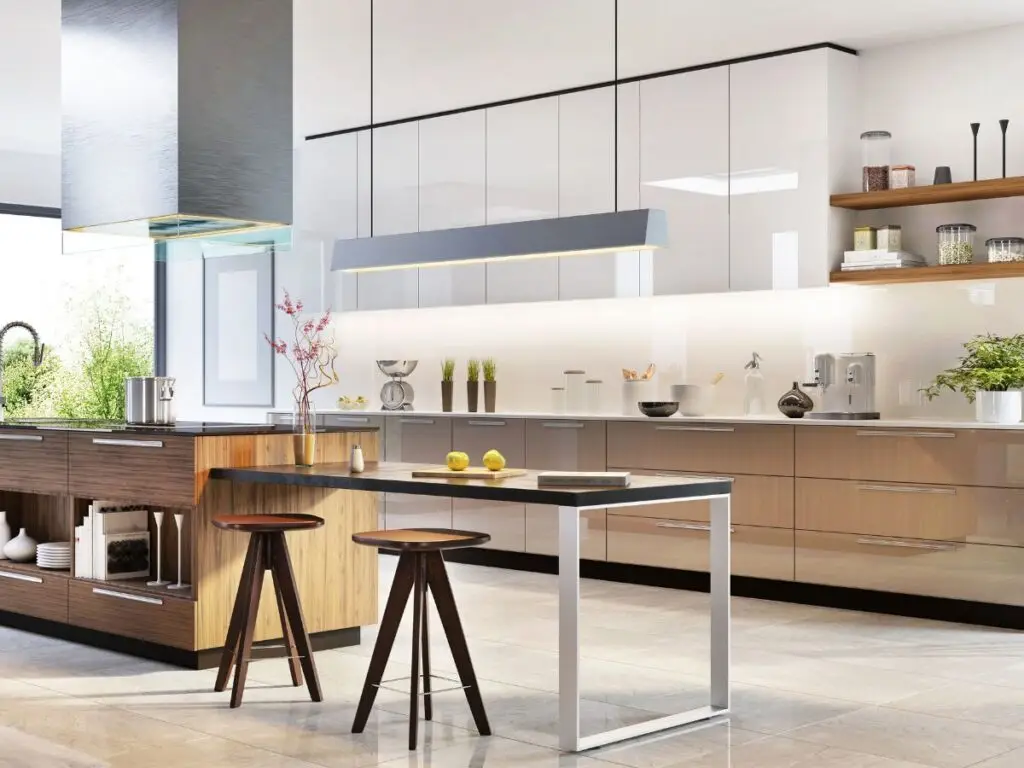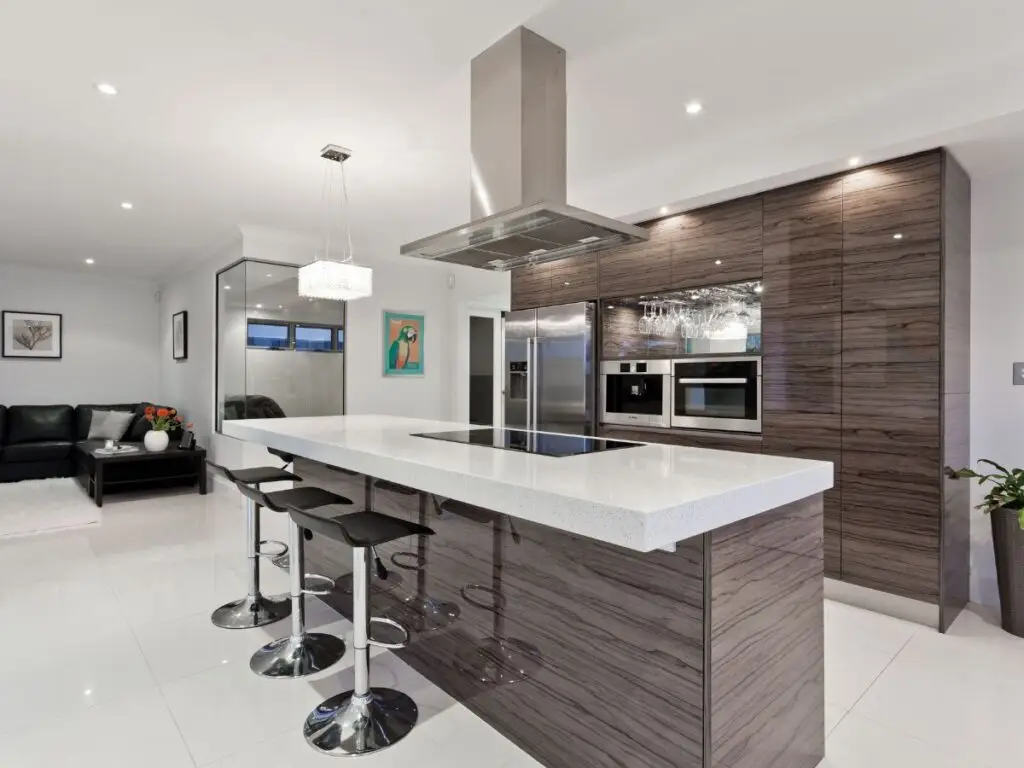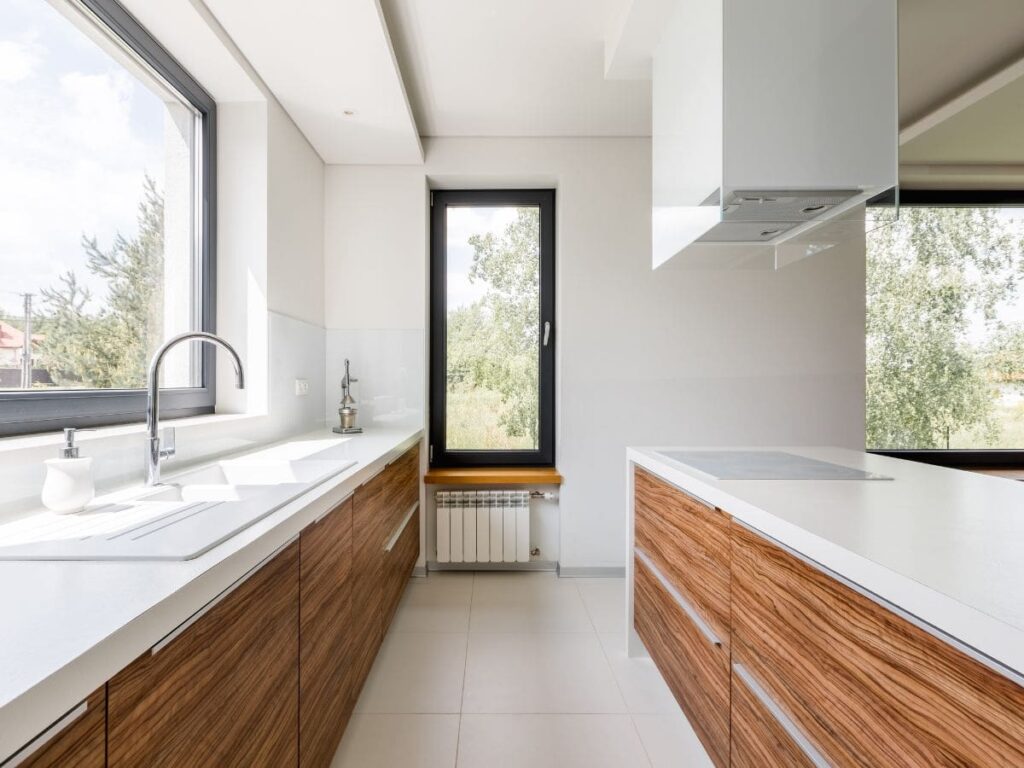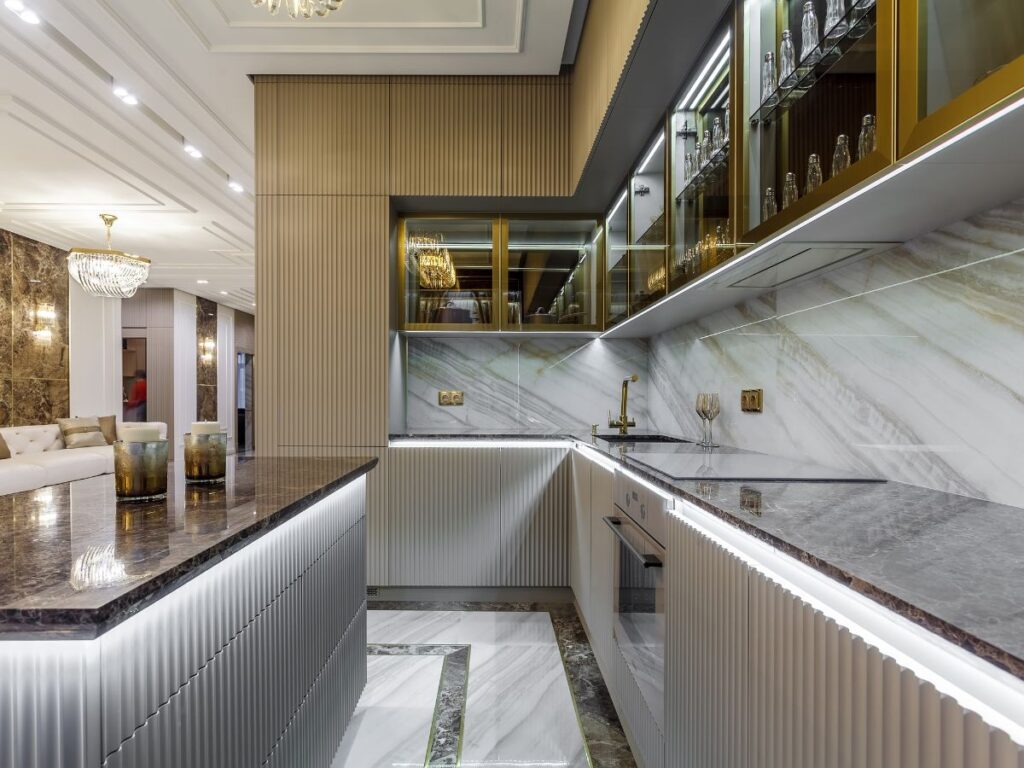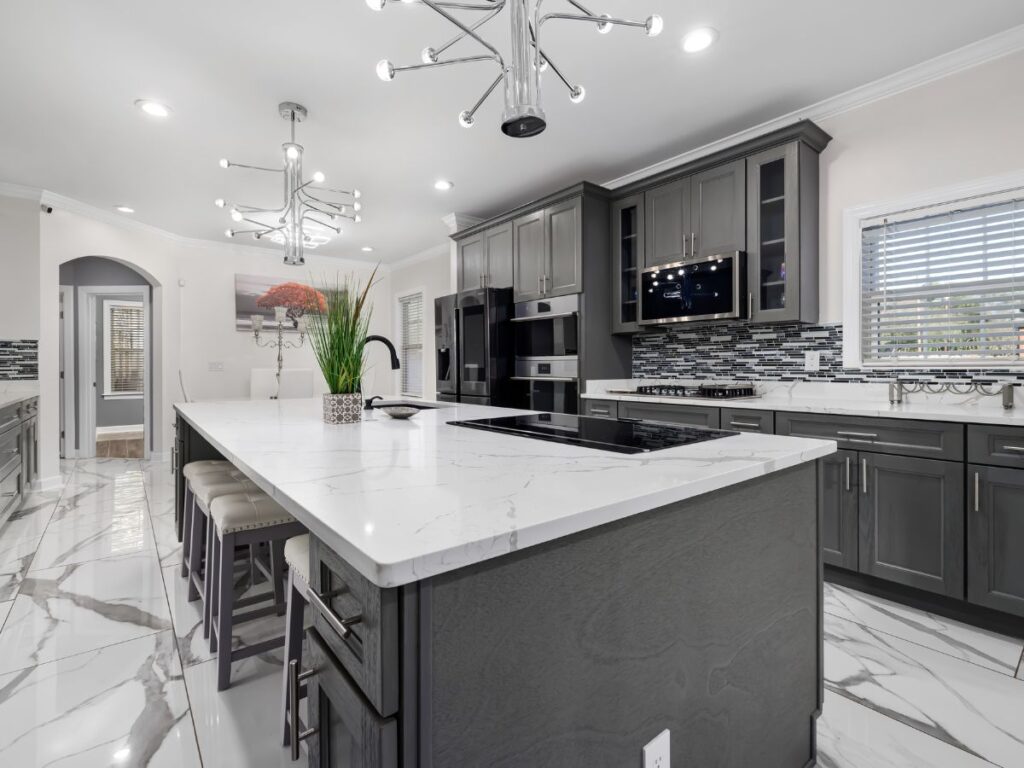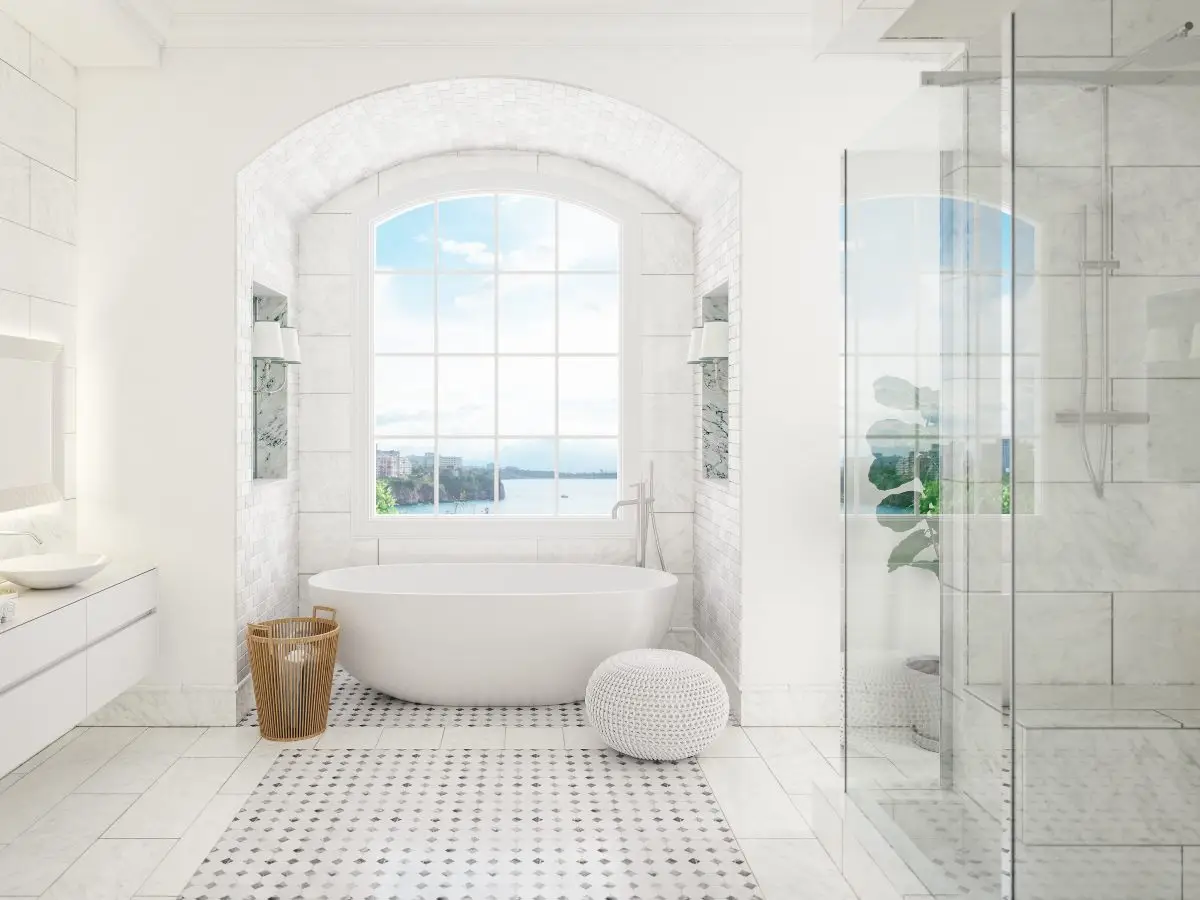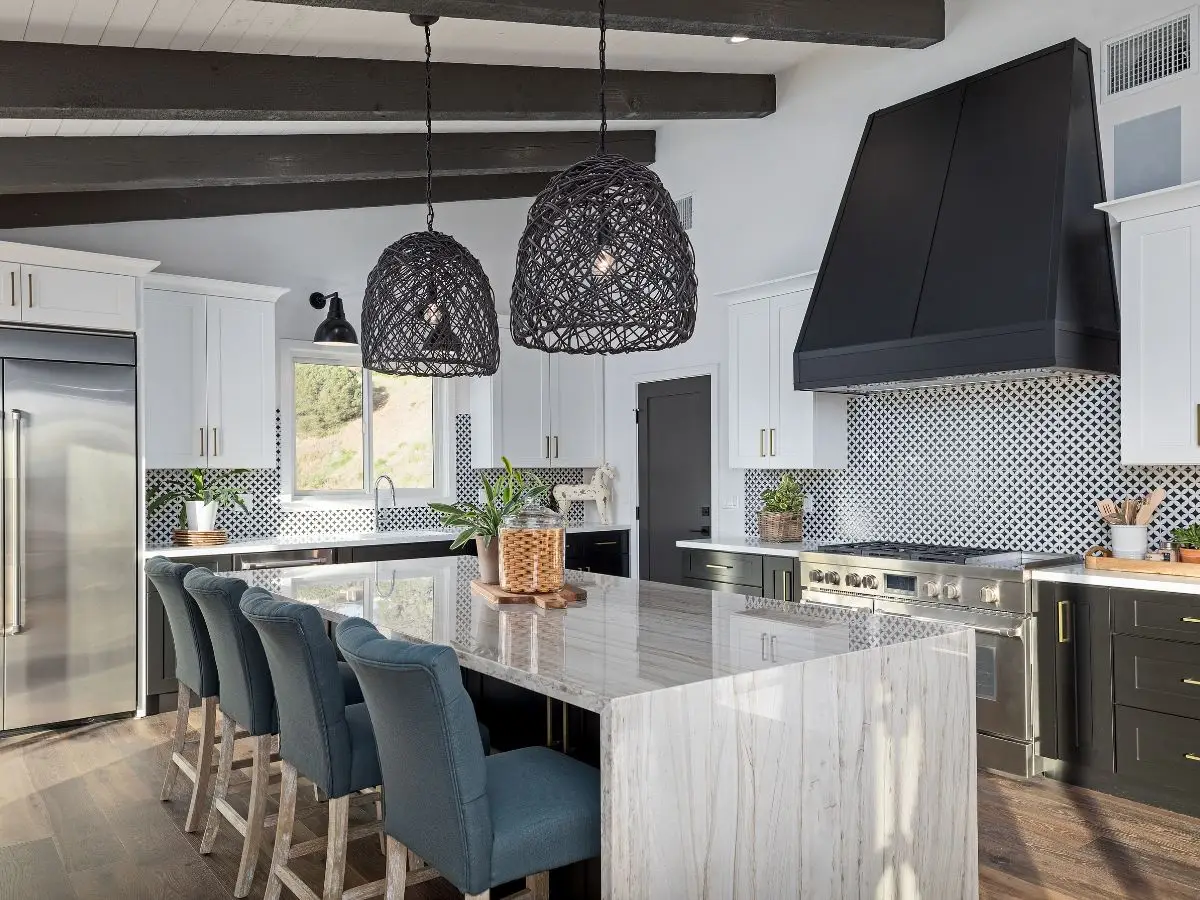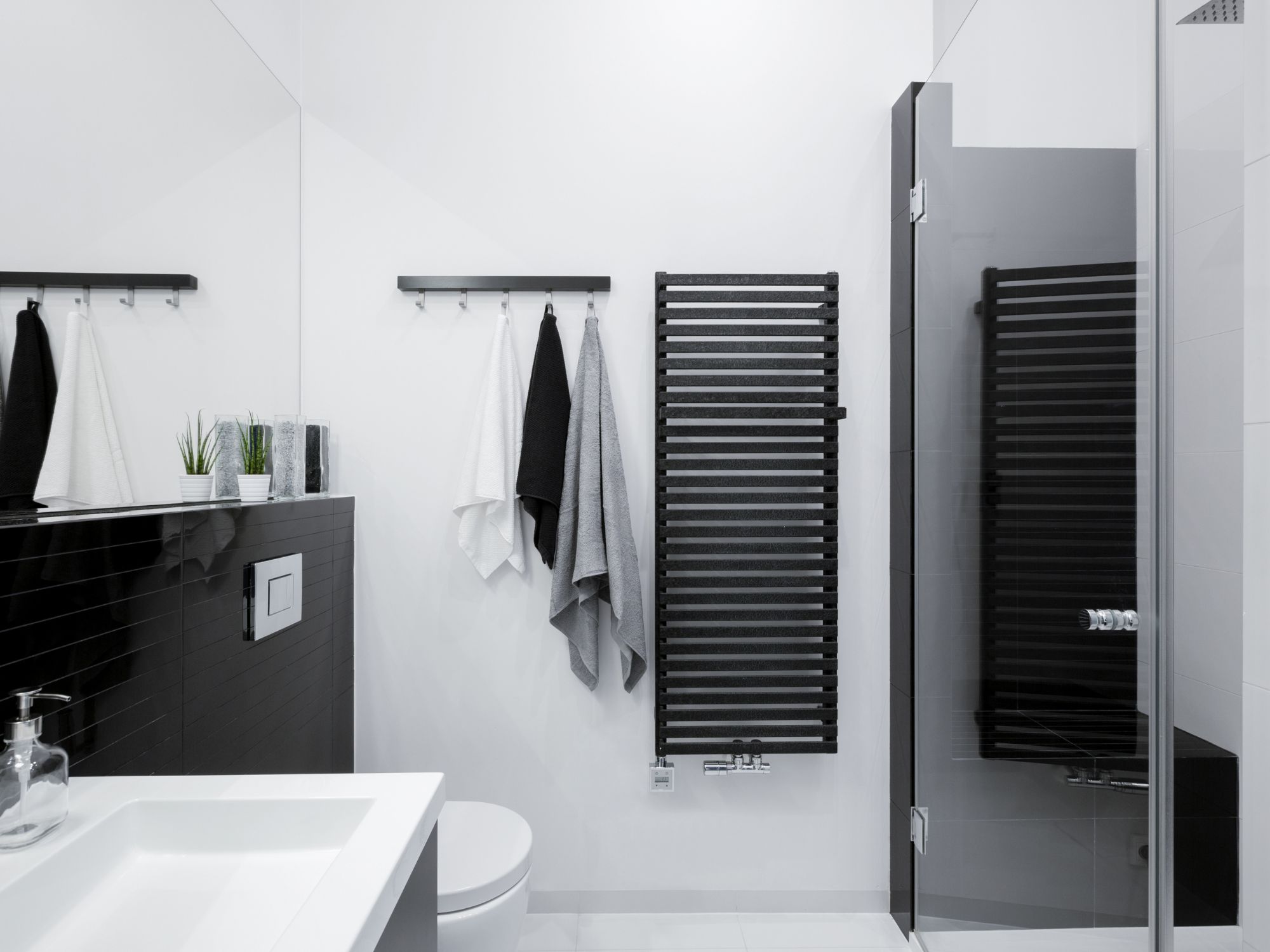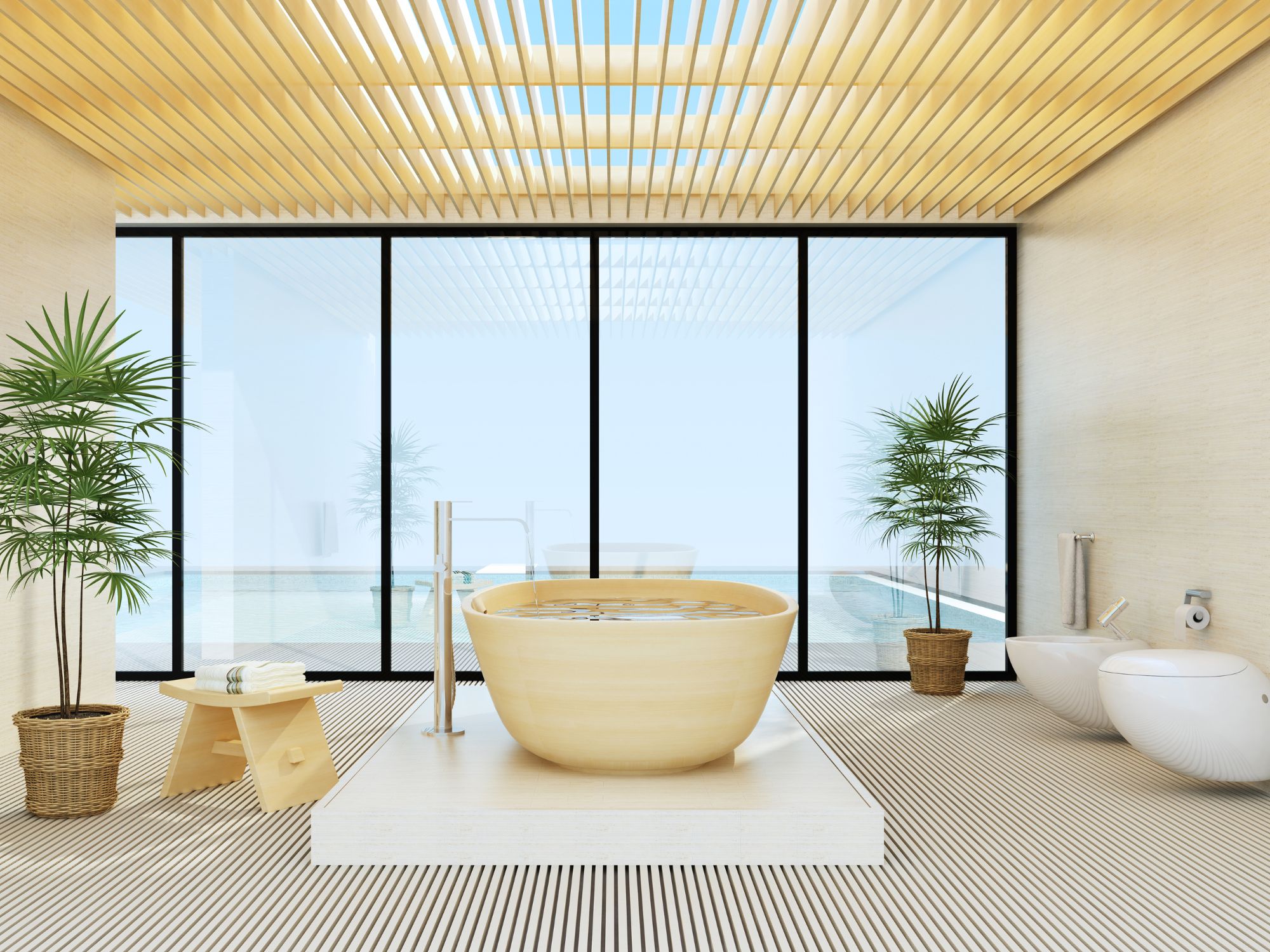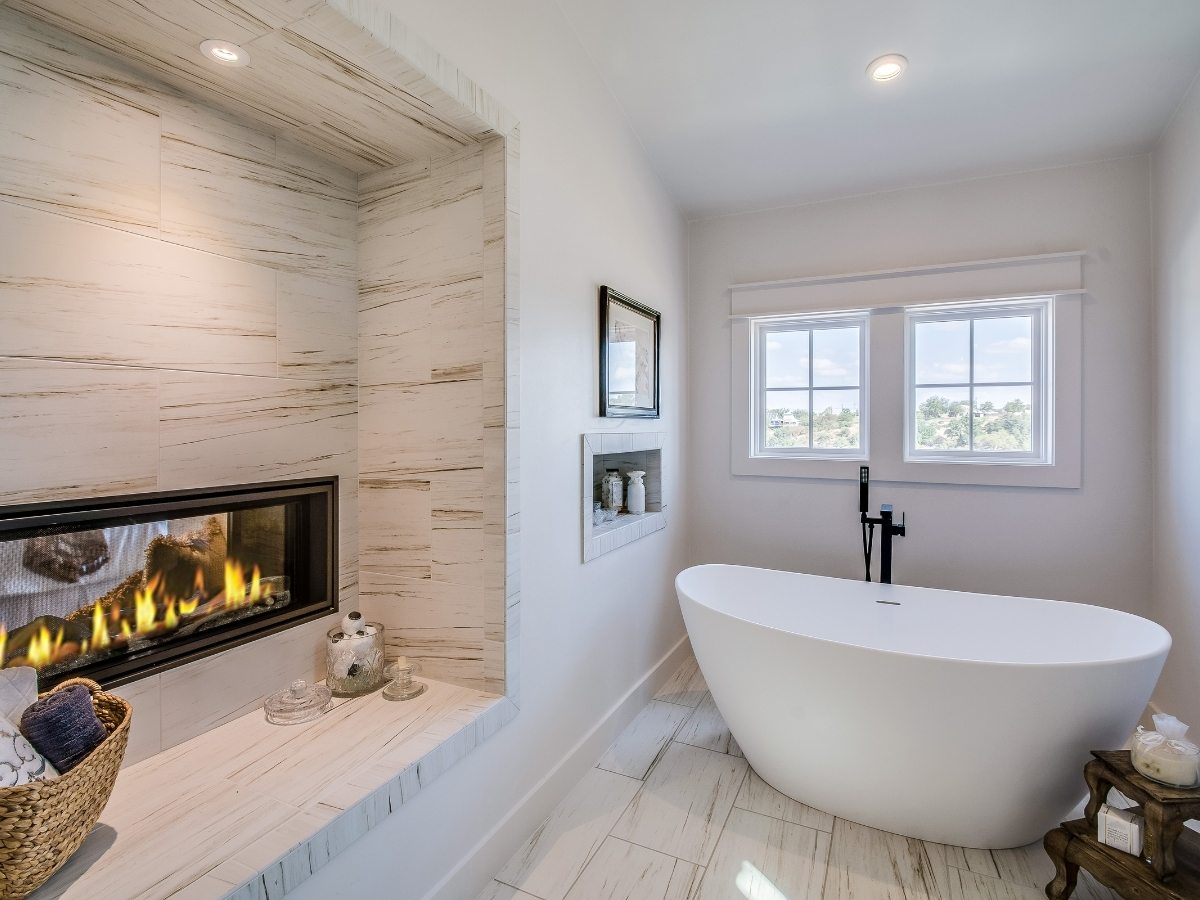Choice Of Kitchen Countertops Materials
Choosing the right countertop material can significantly impact your kitchen or bathroom’s functionality, aesthetics, and long-term value. Kitchen countertops are more than just work surfaces; they define the character and practicality of a space. A well-selected material ensures durability and complements your home’s design while aligning with your lifestyle needs.
Why Countertop Selection Matters
Countertops endure daily use, making their durability and performance crucial. A kitchen countertop must withstand heat, sharp objects, and spills. Similarly, bathroom counters need to resist moisture and frequent cleaning. Beyond practicality, countertops play a vital role in creating a visual statement, either enhancing or detracting from your overall decor.
The wrong choice can lead to frequent maintenance, costly repairs, or a mismatched look. On the other hand, the right material combines beauty, strength, and functionality, offering years of satisfaction.
Key Factors to Consider
- Aesthetics: Countertops can be a centerpiece. Their color, texture, and design should harmonize with cabinets, floors, and walls.
- Functionality: Consider your daily habits. Do you cook often? Is easy maintenance a priority? Match material performance to your lifestyle.
- Durability: High-traffic areas demand materials that resist scratches, heat, and stains.
- Budget: Material cost varies widely. Include installation and maintenance costs in your decision-making.
- Maintenance: Some materials, like butcher block, require regular care, while others, like quartz, offer low-maintenance solutions.
Introducing Popular Countertop Materials
To help you navigate the options, we’ll focus on three popular materials: quartz, granite, and butcher block.
- Quartz: An engineered stone known for its durability, versatility, and non-porous surface. It offers a modern look with minimal upkeep.
- Granite: A natural stone prized for its timeless beauty and durability. Each slab is unique, making it a standout choice for kitchens and bathrooms.
- Butcher Block: A warm, inviting option crafted from wood. Its natural charm suits both rustic and contemporary styles but requires consistent maintenance.
These materials vary in cost, upkeep, and performance. This guide will explore their strengths and weaknesses to help you make an informed decision. Whether you prioritize style, practicality, or sustainability, understanding your options is the first step to finding the perfect countertop for your home.
With this foundation, let’s dive deeper into the unique qualities of quartz, granite, and butcher block.
Granite Countertops
Granite countertops are a staple of timeless elegance and durability in both kitchens and bathrooms. This natural stone, extracted from quarries and meticulously cut into slabs, has long been a favorite for homeowners seeking a balance of practicality and sophistication. Known for its unique veining and patterns, granite ensures that no two countertops are identical, offering a personalized aesthetic that enhances any space.
Overview of Granite
Granite is a natural stone formed over millions of years through intense heat and pressure deep within the Earth. Quarried from locations worldwide, it is cut into slabs and polished to highlight its intricate patterns and rich colors. Each slab’s unique veining and mineral composition create a one-of-a-kind surface, adding depth and character to any room. Whether you prefer subtle, muted tones or bold, dramatic patterns, granite offers a wide spectrum of options to suit diverse design preferences.
Pros of Granite Countertops
Natural Beauty
Granite’s luxurious and timeless appeal is unparalleled. Its organic patterns and rich textures bring a sense of grandeur to kitchens, bathrooms, and other spaces. Whether used in modern, rustic, or traditional designs, granite effortlessly elevates the aesthetic of any room.
Durability
Granite is renowned for its strength and resilience. It resists scratches, making it ideal for high-traffic areas like kitchen countertops. Additionally, its heat-resistant properties allow you to place hot pans or dishes directly on the surface without worry.
Value Addition
Installing granite countertops can significantly boost your home’s resale value. Prospective buyers often view granite as a premium material, adding a sense of quality and luxury to the property.
Cons of Granite Countertops
Porosity
Despite its durability, granite is a porous material. It requires regular sealing to prevent stains from liquids like wine, oil, or coffee. Without proper maintenance, bacteria can accumulate in the pores, compromising hygiene.
Cost
Granite can be expensive, with prices varying widely based on its rarity, origin, and color. Exotic granite varieties tend to command a premium price, making them less accessible for budget-conscious homeowners.
Heavy Weight
Granite slabs are extremely heavy, necessitating reinforced cabinetry to support their weight. This can increase installation complexity and cost.
Best Applications for Granite
Granite’s durability and aesthetic versatility make it suitable for various applications. In high-traffic areas like kitchens, its scratch and heat resistance ensure long-lasting performance. Bathrooms benefit from its water-resistant properties, provided it is properly sealed. Outdoor kitchens are another excellent application, as granite withstands extreme weather conditions with minimal fading or damage.
To maximize its impact, consider pairing granite countertops with complementary materials such as wood or stainless steel. Use bold-patterned granite as a statement piece for kitchen islands or backsplashes, while more subdued tones work well in expansive countertops.
Maintenance and Care Tips
Proper maintenance ensures your granite countertops remain beautiful and functional for years.
- Sealing: Apply a high-quality sealant every 12 to 18 months to protect against stains and bacteria. Perform a water-drop test to check if resealing is needed.
- Daily Cleaning: Use a pH-neutral cleaner or a mix of mild dish soap and water for regular cleaning. Avoid abrasive pads and acidic cleaners, as they can damage the surface.
- Stain Removal: Address spills immediately. For stubborn stains, create a paste using baking soda and water, then gently rub the area.
- Heat and Impact Protection: While granite is heat-resistant, use trivets or hot pads for added precaution. Avoid dropping heavy objects on the surface to prevent cracks or chips.
Granite countertops are an investment in beauty, durability, and home value. With proper care and thoughtful applications, they offer unparalleled performance and elegance for both kitchens and bathrooms.

Quartz Countertops
Quartz countertops have gained immense popularity in recent years due to their durability, versatility, and aesthetic appeal. Engineered from a combination of natural quartz crystals and resins, these countertops offer homeowners the perfect balance between practicality and elegance. Their widespread adoption is a testament to their quality and the advantages they bring to modern living spaces.
Overview of Quartz
Quartz is an engineered stone composed of approximately 90–95% natural quartz crystals combined with resins, pigments, and other materials. During manufacturing, these components are pressed and heated to create a dense, non-porous slab. This engineered process allows for consistent quality and design, ensuring uniform color and texture throughout the material.
Homeowners often choose quartz for its ability to replicate the look of natural stones like marble and granite while eliminating some of their drawbacks. Its engineered nature offers controlled aesthetics, making it a versatile choice for various styles and applications. Whether in sleek modern kitchens or sophisticated traditional bathrooms, quartz fits seamlessly into any design scheme.
Pros of Quartz Countertops
Durability
Quartz is renowned for its durability, making it one of the toughest materials available for countertops. Its dense composition provides exceptional resistance to scratches, chips, and cracks, even in high-traffic areas like kitchens and bathrooms. Additionally, it is highly resistant to stains, making it an excellent choice for spaces prone to spills or heavy usage.
Non-Porous Surface
Unlike natural stones, quartz has a non-porous surface, meaning it doesn’t absorb liquids or harbor bacteria. This feature makes it a hygienic option for food preparation areas. Cleaning is effortless, requiring only a damp cloth and mild soap to maintain its pristine appearance.
Variety of Styles
Quartz offers an extensive range of colors and patterns, many of which mimic the natural beauty of marble or granite. Whether you prefer the veining of Carrara marble or the understated elegance of solid tones, quartz can accommodate nearly any aesthetic preference. Its ability to provide uniformity in design ensures consistency across large installations.
Low Maintenance
Unlike natural stones, quartz does not require sealing or polishing to retain its quality. Its low-maintenance nature appeals to busy homeowners who value functionality and convenience without sacrificing style.
Cons of Quartz Countertops
Cost
One drawback of quartz is its higher cost compared to some natural stones like granite. While its durability and low maintenance can offset this initial investment, budget-conscious homeowners may find the upfront price challenging.
Heat Sensitivity
Quartz is heat-resistant to an extent, but prolonged exposure to high temperatures can cause discoloration or damage. Placing hot pans or pots directly on the surface can leave permanent marks, requiring homeowners to use trivets or heat-resistant pads.
Manufactured Look
Although quartz can mimic natural stone, some homeowners feel it lacks the unique, organic patterns found in materials like granite. While modern manufacturing techniques have improved its ability to replicate natural aesthetics, discerning buyers may still prefer the authenticity of natural stone.
Best Applications for Quartz
Quartz countertops are versatile and suit a variety of settings. In kitchens, their durability and non-porous surface make them ideal for food preparation and cooking spaces. Bathrooms benefit from quartz’s water resistance and low maintenance, as it withstands moisture without staining or warping.
In commercial spaces, quartz is often used for countertops, reception desks, and wall cladding due to its durability and design flexibility. It seamlessly integrates into modern, minimalist designs, providing a clean and sophisticated look. For traditional interiors, quartz can mimic natural stones to maintain a classic aesthetic while offering modern conveniences.
Homeowners can also use quartz creatively by pairing it with contrasting materials. For example, combining a quartz countertop with a butcher block island creates visual interest while balancing aesthetics and functionality.
Maintenance and Care Tips
Quartz countertops are easy to maintain, but proper care ensures they retain their beauty and longevity. For daily cleaning, use a soft cloth or sponge with warm water and mild soap. Avoid abrasive cleaners or scouring pads, which can dull the surface over time.
To protect quartz from heat damage, always use trivets or pads under hot cookware. Avoid placing slow cookers, heat-generating appliances, or hot pans directly on the surface. Similarly, use cutting boards to prevent accidental scratches, even though quartz is highly resistant to wear.
Heavy impacts should also be avoided, as extreme force can chip or crack the material. While quartz is highly durable, mishandling can compromise its integrity. Following these precautions will keep your quartz countertops looking flawless for years to come.
Quartz countertops combine durability, low maintenance, and customizable aesthetics, making them an excellent choice for modern homes. By understanding their strengths, limitations, and care requirements, you can ensure that quartz remains a timeless and functional addition to your space.
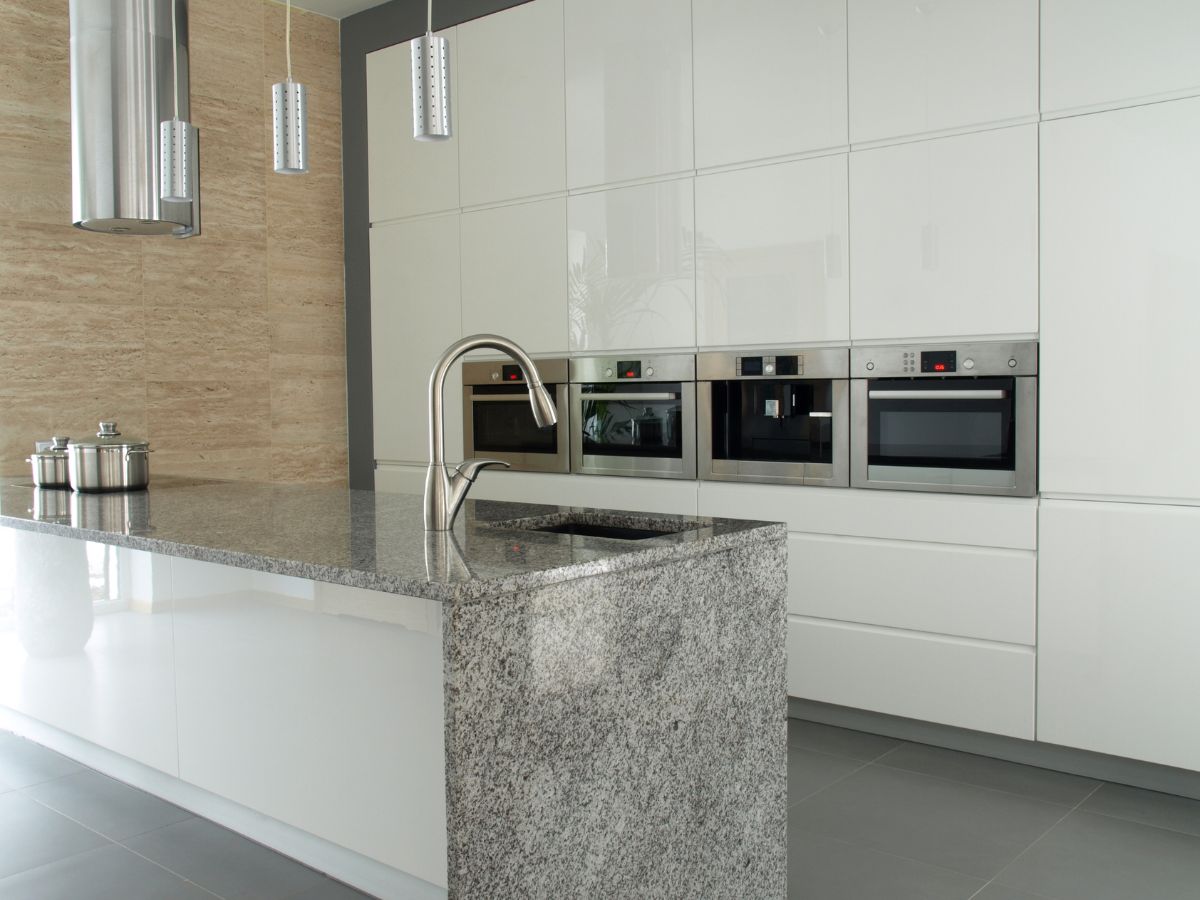
Butcher Block Countertops: A Warm and Versatile Choice
Butcher block countertops bring a timeless warmth and natural charm to kitchens and bathrooms. Crafted from strips of wood bonded together, these countertops offer a uniquely organic appeal. Whether you favor the light tones of maple or the rich hues of walnut, butcher block countertops complement various interior styles, from rustic farmhouse to sleek modern spaces.
Overview of Butcher Block
Butcher block is made by assembling wood strips into sturdy slabs. This construction highlights the natural grain and texture of the wood, creating a visually appealing and tactile surface. Popular wood types include maple, oak, cherry, and walnut, each offering distinct colors and characteristics. Maple provides a light, clean look, while walnut adds deep, rich tones. Cherry develops a warm patina over time, and oak is prized for its durability and traditional charm.
Butcher block’s ability to blend with different design themes makes it a popular choice. It works seamlessly as a primary countertop or as an accent material for kitchen islands and smaller spaces.
Pros of Butcher Block Countertops
Affordability
Butcher block is one of the most cost-effective countertop options, making it accessible for budget-conscious homeowners. Its natural beauty rivals pricier materials, offering an elegant look at a fraction of the cost.
Versatility
This material suits a wide range of styles. It enhances the cozy feel of farmhouse kitchens, adds warmth to minimalist designs, and pairs beautifully with industrial elements like stainless steel or concrete.
Renewable Surface
One of butcher block’s standout features is its renewability. Minor scratches, stains, or dents can be sanded away, restoring the surface to its original condition. This ability to refinish ensures longevity and keeps the countertop looking fresh.
Cons of Butcher Block Countertops
High Maintenance
Butcher block requires consistent upkeep to maintain its beauty and integrity. Regular oiling prevents the wood from drying out and cracking while protecting it from moisture damage. Neglecting maintenance can lead to splitting or warping over time.
Vulnerability to Water and Heat
Wood is porous and absorbs water, which can lead to warping or stains if spills are not promptly cleaned. Additionally, placing hot pots or pans directly on the surface can scorch or discolor the wood.
Softness of Wood
Wood’s natural softness makes it prone to scratches, dents, and knife marks. While these imperfections can add character, they may not appeal to homeowners seeking a pristine, polished look.
Best Applications for Butcher Block
Butcher block shines in specific applications where its warmth and texture can take center stage. It works beautifully for kitchen islands, providing a focal point that enhances functionality and style. Using butcher block in smaller sections, such as an accent countertop or a dedicated prep area, adds visual interest without overwhelming the space.
In mixed-material designs, butcher block pairs well with stone or metal countertops. This approach balances the warmth of wood with the durability of other materials, creating a dynamic and inviting kitchen.
Maintenance and Care Tips
Proper maintenance is crucial to keeping butcher block countertops in excellent condition.
- Oiling: Apply food-safe mineral oil or specialized butcher block conditioner regularly to maintain moisture balance. The frequency depends on use and climate but typically ranges from monthly to quarterly.
- Sealing: For additional protection, consider applying a water-resistant sealer. This is especially useful in high-moisture areas like around sinks.
- Daily Care: Wipe the surface with a damp cloth and mild soap. Avoid soaking the wood or using harsh cleaners, which can strip the finish.
- Preventive Measures: Use cutting boards for chopping to prevent knife marks. Place trivets under hot pans to avoid burns. Clean up spills immediately to prevent water absorption.
If damage occurs, sanding the affected area can remove scratches or stains. Follow sanding with oiling or resealing to restore the surface’s protective layer.
Butcher block countertops combine affordability, warmth, and versatility, making them a favorite for many homeowners. While they require more care than some other materials, their renewability and timeless appeal make them a worthwhile investment. With proper maintenance, butcher block can remain a beautiful and functional addition to your kitchen or bathroom for years to come.

Comparison of Quartz, Granite, and Butcher Block Countertops
Selecting the ideal countertop material involves assessing how different options meet your functional, aesthetic, and budgetary needs. This side-by-side comparison of quartz, granite, and butcher block examines key factors, helping you make an informed decision for your kitchen or bathroom.
Durability
Countertops endure daily use, making their durability and performance crucial. A kitchen countertop must withstand heat, sharp objects, and spills. Similarly, bathroom counters need to resist moisture and frequent cleaning. Beyond practicality, countertops play a vital role in creating a visual statement, either enhancing or detracting from your overall decor.
Quartz: Quartz countertops are among the most durable options available. Engineered with resin and natural quartz, they are non-porous and resistant to scratches, stains, and cracks. They handle daily wear exceptionally well, making them a low-maintenance choice for busy households.
Granite: Granite is highly durable, with excellent resistance to heat and scratches. However, its natural porosity requires regular sealing to prevent staining and water absorption. When properly maintained, granite can last for decades without losing its appeal.
Butcher Block: Butcher block is softer than quartz and granite, making it more susceptible to scratches, dents, and knife marks. While this adds character for some, others may find it less appealing. Regular sanding and refinishing can restore its surface, but its vulnerability to water and heat demands consistent care.
Aesthetic Appeal
Quartz: Quartz offers unmatched design flexibility. Since it is engineered, manufacturers produce it in a wide range of colors, patterns, and finishes. It can mimic the look of natural stone or deliver sleek, uniform designs, suiting modern and traditional spaces alike.
Granite: Granite’s natural veining and unique patterns give each slab an individual character. It brings a timeless, luxurious look to kitchens and bathrooms. However, color and pattern options depend on the available stone, making customization more limited than with quartz.
Butcher Block: Butcher block provides a warm, natural aesthetic that works well in both rustic and contemporary designs. The wood’s grain patterns and tones add texture and charm. However, its appearance evolves over time, developing a patina that may not suit every homeowner’s preference.
Cost Analysis
Quartz: Quartz tends to have a high upfront cost, typically ranging from $50 to $150 per square foot, including installation. However, its low maintenance requirements and long lifespan make it a cost-effective choice over time.
Granite: Granite prices vary widely, from $40 to over $200 per square foot, depending on the rarity and origin of the stone. While initial costs can be high, granite’s durability and ability to boost resale value justify the investment. Maintenance costs, like periodic sealing, add to long-term expenses.
Butcher Block: Butcher block is the most affordable option, with costs ranging from $30 to $100 per square foot. However, its higher maintenance needs, including regular oiling and refinishing, can increase lifetime expenses. For budget-conscious homeowners seeking natural beauty, it remains an attractive option.
Sustainability
Quartz: Quartz has a moderate environmental impact. While it uses natural materials, the manufacturing process involves energy-intensive practices and synthetic resins. Some brands offer eco-friendly options by using recycled materials.
Granite: Granite is a natural material with minimal processing, reducing its carbon footprint. However, transporting heavy slabs from quarries, often overseas, increases its environmental impact. Sourcing local granite can help mitigate these effects.
Butcher Block: Butcher block is the most sustainable option when responsibly sourced. Renewable woods like bamboo and FSC-certified hardwoods minimize environmental impact. Additionally, its biodegradability makes it a greener choice compared to stone or engineered materials.
Installation Requirements
Quartz: Quartz countertops require professional installation due to their weight and the need for precise cutting and sealing. Skilled expertise ensures proper fit and a polished finish.
Granite: Granite installation is similarly complex. Its weight necessitates reinforced cabinetry, and precise cutting is essential to fit sinks, edges, and seams. DIY installation is not recommended.
Butcher Block: Butcher block countertops are easier to install, often making them suitable for DIY enthusiasts. However, professional installation may be necessary for custom designs or complex layouts. Their lighter weight reduces the need for structural reinforcement, simplifying the process.
Final Thoughts
Quartz, granite, and butcher block each excel in specific areas. Quartz offers durability and design flexibility, granite boasts natural beauty and timeless appeal, while butcher block provides affordability and warmth. Consider your priorities—whether they are durability, aesthetic appeal, or eco-friendliness—when selecting the best material for your home.

Choosing the Right Countertop Material for Your Needs
Selecting the ideal countertop material requires aligning your priorities with the unique demands of your space. A well-chosen countertop balances functionality, aesthetics, and budget while enhancing the usability of your kitchen or bathroom. Understanding your lifestyle, habits, and specific room requirements will help ensure your countertop meets both practical needs and design preferences.
Personal Priorities: Balancing Functionality, Aesthetics, and Budget
Your countertop choice should reflect your individual priorities. If functionality is paramount, consider durability, resistance to damage, and ease of maintenance. Quartz, for instance, is highly durable and low-maintenance, making it an excellent option for busy households. Conversely, butcher block countertops may appeal to homeowners who value warmth and natural charm, even though they require regular upkeep.
Aesthetics are equally important. Quartz offers nearly limitless design options, while granite’s unique veining adds natural elegance. Butcher block brings a rustic or cozy touch, complementing both traditional and modern interiors. Prioritize the material that aligns with your overall design vision.
Budget plays a critical role in the decision-making process. If cost is a primary concern, butcher block offers an affordable yet stylish solution. While granite and quartz may have higher upfront costs, their durability and long-term value can justify the investment. Consider the balance between initial costs and maintenance expenses when evaluating your options.
Lifestyle Considerations: Cooking Habits, Family Needs, and Maintenance Preferences
Your daily routines and household dynamics significantly influence the best choice of countertop material. If you frequently cook or bake, prioritize surfaces that withstand heat, scratches, and spills. Granite and quartz excel in these areas, offering resistance to damage from hot pans, sharp knives, and acidic substances.
For families with young children, durability and ease of cleaning are essential. Quartz’s non-porous surface resists stains and bacteria, making it a hygienic choice for homes with children. Butcher block, while softer, may suit families who value its renewable surface, which allows sanding out scratches or dents caused by everyday use.
Maintenance preferences should also guide your decision. Homeowners who prefer minimal upkeep will appreciate quartz’s low-maintenance nature. Conversely, butcher block requires regular oiling and occasional refinishing to maintain its appearance and integrity. Granite, with its need for periodic sealing, strikes a middle ground.
Room-Specific Tips: Recommendations for Kitchens Versus Bathrooms
The demands of kitchens and bathrooms differ, requiring tailored countertop choices for each space. In kitchens, countertops must endure high traffic, heat, and potential damage from cooking activities. Quartz stands out as a versatile and practical option, combining durability with customizable aesthetics. Granite works well in kitchens that benefit from its natural beauty and heat resistance, particularly for high-end designs. Butcher block can serve as a standout surface for kitchen islands, adding warmth and functionality to food prep areas.
In bathrooms, water resistance becomes a critical factor. Quartz’s non-porous nature makes it ideal for vanities, preventing water damage and stains from makeup or toiletries. Granite, if sealed properly, can also function well in bathrooms, adding elegance to sinks and countertops. Butcher block, while less common in bathrooms, can create a cozy and unique design if properly treated to resist moisture.
For both kitchens and bathrooms, combining materials can offer practical and aesthetic benefits. Use butcher block for a kitchen island and quartz or granite for the surrounding countertops to achieve a balanced look. In bathrooms, mix stone countertops with wood accents for a spa-like ambiance.
Choosing the right countertop material involves more than selecting a beautiful surface. It requires careful consideration of your lifestyle, personal priorities, and the specific demands of each space. By evaluating these factors, you can ensure your countertop choice enhances both the functionality and style of your home.

DIY vs. Professional Installation: Finding the Right Fit
Installing countertops is a significant step in kitchen or bathroom renovations, and choosing between DIY and professional installation depends on the material, complexity, and your skill level. While some projects can be managed by handy homeowners, others demand the expertise of trained professionals to ensure durability, functionality, and aesthetics.
When to DIY: Simple Projects and Butcher Block Refinishing
Certain countertop tasks, especially those involving simpler materials like butcher block, are well-suited for DIY enthusiasts. Butcher block’s lightweight nature and straightforward installation process make it an excellent option for homeowners with basic carpentry skills. Pre-cut slabs simplify the process, reducing the need for complex measurements or specialized tools.
DIY projects also include refinishing or repairing existing butcher block countertops. Sanding out scratches or dents and applying fresh oil or sealant can rejuvenate the surface, extending its life without professional help. Homeowners who enjoy hands-on work and have the patience for detail-oriented tasks can achieve excellent results with butcher block.
However, DIY efforts require careful planning and preparation. Always measure the space accurately, use the right tools, and follow manufacturer guidelines to avoid costly mistakes. It’s also essential to understand material-specific requirements, such as sealing wood or preventing moisture exposure during installation.
When to Call a Pro: Complex Installations Like Quartz and Granite
Countertops made from quartz and granite often demand professional installation due to their weight, precision requirements, and complexity. Quartz is engineered with resin and natural stone, creating a dense and heavy material that requires specialized equipment to cut and install. Improper handling can lead to cracks or misaligned seams, compromising its durability and appearance.
Granite, being a natural stone, is similarly challenging to install. Each slab is unique, requiring precision cuts to accommodate sinks, corners, and edges. Its weight necessitates reinforced cabinetry and experienced installers to prevent structural damage or improper placement. Hiring professionals ensures these challenges are managed effectively, reducing the risk of errors.
Additionally, professionals bring expertise in handling adhesives, seams, and finishes, which are critical to achieving a seamless and polished look. While professional installation adds to the overall cost, it guarantees longevity and enhances the countertop’s functionality and aesthetic appeal.
Tips for Working with Contractors: Setting Expectations, Timelines, and Budgets
When hiring professionals, effective communication and planning are key to a smooth installation process. Start by researching reputable contractors with experience in the specific countertop material you’ve chosen. Read reviews, request references, and compare quotes to ensure you find the right fit for your project.
Before work begins, set clear expectations regarding the scope of the project. Discuss the design, material selection, and any customization, such as edge profiles or integrated sinks. Ensure the contractor understands your vision and preferences to avoid misunderstandings.
Establishing a realistic timeline is equally important. Work with the contractor to create a schedule that accounts for material delivery, preparation, and installation. Delays can occur, so build flexibility into the timeline while maintaining communication about progress.
Budgeting is another critical aspect of working with contractors. Request a detailed estimate that includes material costs, labor, and any additional expenses, such as reinforcements or disposal of old countertops. Factor in a contingency fund to cover unexpected issues, such as damaged materials or structural adjustments.
Finally, maintain an open line of communication throughout the project. Regular updates and check-ins ensure the work aligns with your expectations and allows for adjustments if necessary. Clear documentation, including contracts and warranties, protects both parties and provides clarity on the agreed terms.
Choosing between DIY and professional installation depends on the material’s complexity, your skill level, and your budget. While DIY can save money on simpler tasks, professional installation guarantees precision and quality for intricate materials like quartz and granite. Whether you go it alone or hire a contractor, careful planning and attention to detail will ensure your countertop installation is a success.

Making the Best Countertop Choice for Your Home
Choosing the right countertop material is an essential step in designing a functional and beautiful kitchen or bathroom. Each material—quartz, granite, and butcher block—offers unique strengths and weaknesses, making it critical to evaluate them in the context of your needs, lifestyle, and style preferences. With thoughtful consideration and proper care, any of these options can provide a durable and attractive surface for years to come.
Strengths and Weaknesses of Quartz, Granite, and Butcher Block
Quartz stands out for its durability, low maintenance, and design flexibility. Its engineered composition creates a non-porous surface that resists stains, scratches, and bacteria, making it ideal for busy households. However, quartz tends to be one of the more expensive options, and its appearance lacks the unique natural patterns of stone. It’s also less heat-resistant compared to granite, requiring caution with hot pans or appliances.
Granite, with its timeless appeal and natural beauty, remains a favorite for those who appreciate organic elegance. Its heat resistance and durability make it well-suited for high-traffic kitchens. However, granite requires regular sealing to maintain its integrity and resist stains. Its cost can vary widely depending on the slab’s rarity, and the heavy weight of granite necessitates professional installation and reinforced cabinetry.
Butcher block brings a warm, natural charm that complements both modern and traditional interiors. Its affordability, versatility, and renewable surface make it an excellent choice for DIY enthusiasts and homeowners seeking a rustic or cozy ambiance. However, butcher block requires consistent maintenance, such as oiling, to prevent drying, warping, and staining. Its softer surface is prone to scratches and dents, which may bother homeowners seeking a pristine finish.
Consider Individual Needs and Style Preferences
Ultimately, the best countertop material depends on your specific priorities and preferences. Consider how you use your space, your willingness to maintain the material, and the overall aesthetic you want to achieve. A busy household may prioritize durability and low maintenance, leaning towards quartz. Families that cook extensively and value natural beauty might prefer granite. Those seeking a cost-effective, warm, and versatile option might find butcher block a perfect fit.
Style preferences also play a significant role. Quartz offers nearly limitless customization, accommodating bold, minimalist, or intricate designs. Granite’s one-of-a-kind patterns and earthy tones provide a natural sophistication, while butcher block’s wood grain and warmth add character and comfort to any room. Choose the material that aligns with your personal taste and enhances the ambiance of your home.
Ensuring Long-Lasting Countertops, Regardless of Material Choice
To maximize the lifespan of your countertops, prioritize proper care and maintenance. Regular cleaning with appropriate products is essential to prevent damage and maintain a polished appearance. Avoid abrasive cleaners that could scratch or dull surfaces.
For quartz countertops, protect them from direct heat by using trivets or pads and clean up spills promptly to avoid potential discoloration. Granite countertops require periodic resealing to maintain their resistance to stains and moisture; follow manufacturer recommendations for the best results. With butcher block, oil the surface regularly to keep it moisturized and sand out minor scratches or stains to restore its finish.
Preventative measures, such as using cutting boards, coasters, and trivets, can significantly reduce wear and tear. Educate everyone in your household about proper care practices to avoid accidental damage. Additionally, invest in professional installation when necessary, as a well-installed countertop provides a solid foundation for long-term performance.
When selecting and maintaining countertops, patience and attention to detail pay off. By understanding the strengths and challenges of each material and tailoring your choice to your needs, you can create a space that is both functional and visually stunning. With the right care, your countertops will serve as a lasting investment in your home’s beauty and functionality.
Summary of Countertop Materials – Characteristics
| Material | Applications | Pros | Cons | Cost | Maintenance | Aesthetics | Functionality | Design Style |
|---|---|---|---|---|---|---|---|---|
| Quartz | Kitchens Islands Counters |
|
|
High | Easy, no sealing required | Modern, sleek, and customizable | Highly functional and hygienic | Modern, minimalist, or versatile |
| Granite | Kitchens, outdoor use |
|
|
Varies (mid-high) | Requires regular sealing | Natural and unique patterns | Durable but needs care | Luxurious and classic |
| Butcher Block | Kitchen islands, accent areas |
|
|
Low to mid | Frequent oiling required | Rustic and warm | Functional for prep areas | Rustic, farmhouse, or eclectic |


